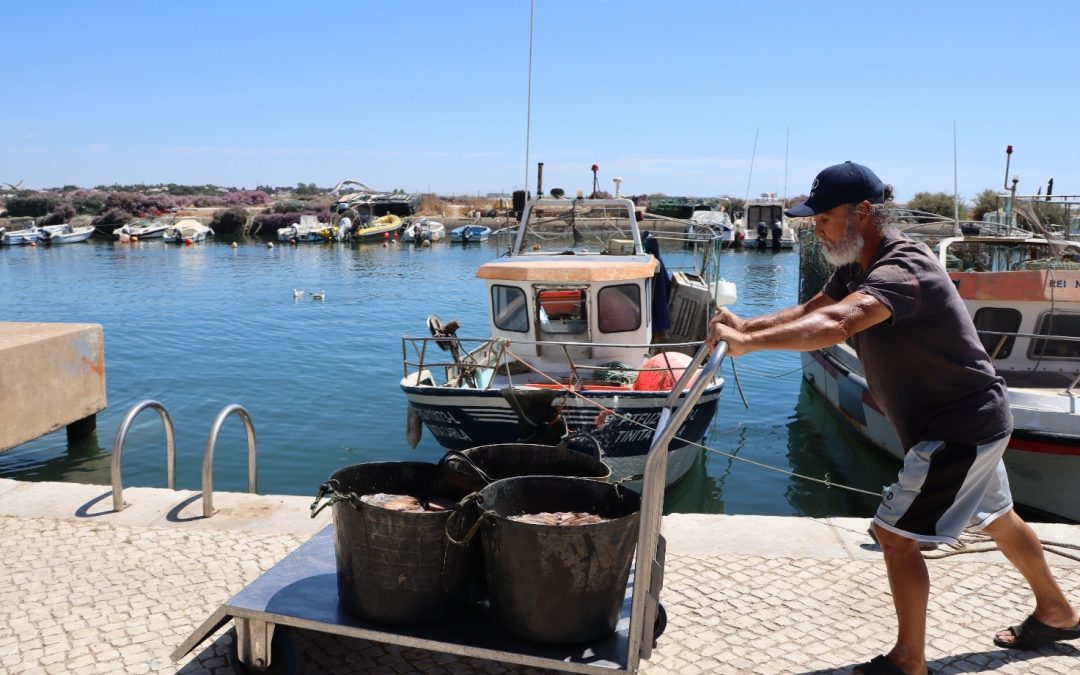The SEA2SEE project aims to enhance the visibility of actors with sustainable seafood practices, providing them a competitive advantage. Multiple partners from Spain, Bulgaria, the Netherlands, Greece, France, and Portugal are working together to fill in existing seafood traceability gaps through the development of an innovative blockchain-based platform. This platform, along with professional and consumer applications, aims to increase trust and social acceptance of sustainably fished and farmed seafood. In order to generate solutions for sustainable seafood consumption, the identification of barriers is crucial. This is where the role of technology and participatory workshops comes in.
In Portugal, partners ANP|WWF, CCMAR, CESAM and SEAentia were trained by the project partner SUBMON and actively worked to understand and utilize the methodology adopted in the project. Building on their training, the Portuguese partners organized a participatory workshop engaging various stakeholders, such as public administration, consumer clusters, supermarkets, fish auctions, influencers, hotels/restaurants, consultancy organizations, scientists and similar projects. The workshop aimed to identify barriers and develop solutions for sustainable seafood consumption using the Interpretive Structural Modeling (ISM) software.
Participatory workshops play a crucial role in promoting actual changes by fostering collaboration, knowledge exchange, and informed decision-making among stakeholders. They provide a platform for diverse actors, including fishers, scientists, industry, policymakers, and consumers, to come together, share perspectives, and collectively address challenges. In the context of the SEA2SEE project, the Portuguese partners utilized the ISM software during the participatory workshop to structure the identified barriers to sustainable seafood consumption, previously identified by almost 90 consumers through an online survey.
The outcome of the Collective Intelligence Workshop was a comprehensive map of barriers, visually representing the relationship between these barriers, highlighting crucial areas of action required, providing a foundation for generating measures and solutions, in order to increase traceability, to drive a shift in the way we consume and value seafood. The Portuguese participation in the SEA2SEE project underscores the significance of participatory workshops and technology in promoting sustainable seafood consumption. This inclusive approach enables the identification of collaborative solutions and informed decision-making processes. Through the use of groundbreaking technology and facilitating collaboration among diverse stakeholders, we were able to identify barriers and develop solutions.
Portugal will have as case studies the octopus fishing in Fuseta and the production, in aquaculture, of meagre, being the only country of the entire SEA2SEE consortium to work with both methods of fish production, fishing and aquaculture, thus bringing challenges and increased responsibilities in the pursuit of traceability. We believe that together, and with the use of participatory dynamics and innovative technologies, we will be able to successfully fulfill the objectives of SEA2SEE project.
Contributor: ANP|WWF Team

